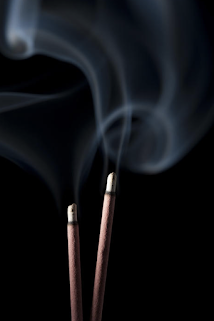Sacrificial Smell - The Aroma of Righteousness

Sacraficial Smell Last year I started meeting 1-1 with an InterVaristy staff for mentorship and descipling. Our relationship formed from a conversation I had with her under the impression I would see her maybe once or twice more before graduating. I had been introduced to her a few times at different events, but she staffed a different campus and was only at Wheaton for the day. I had recently returned from a very difficult study abroad. I was entirely disillusioned with my school work and felt only stress when I thought about Wheaton’s Christian fellowship which I was leading. I was in need of serious rest. I let the staff know all of these things because I thought there would be no consequences. She however, had a lot more flexibility in her schedule than I was aware of and committed to meeting with me for direction for as long as I wanted up until graduation. One of the first things we ended up speaking about was Sabbath. I was not aware of the Sabbath as a spiritual practice...








